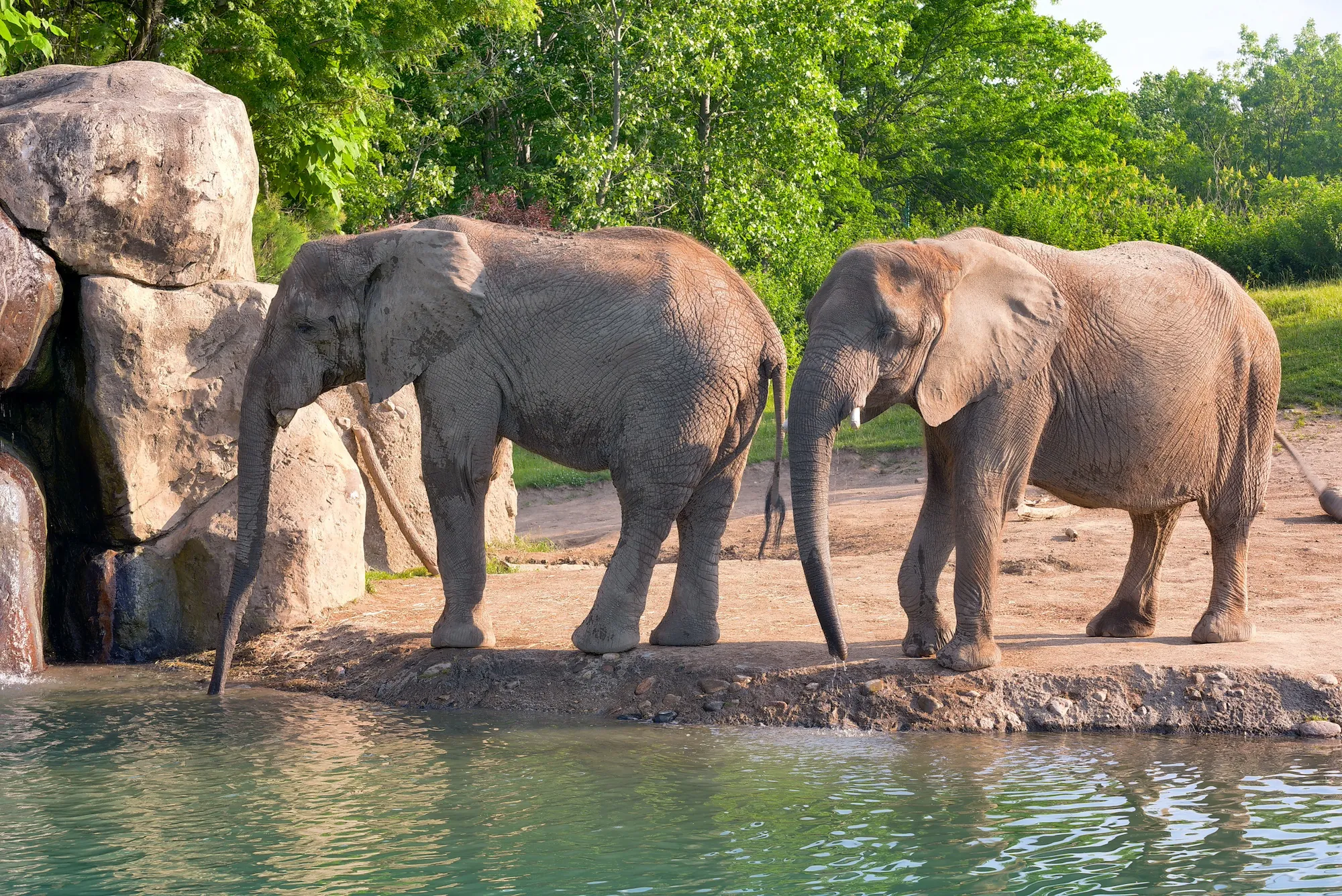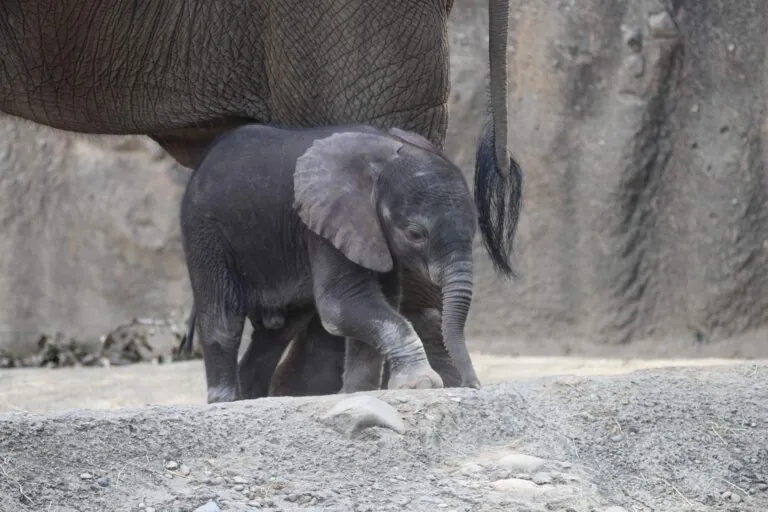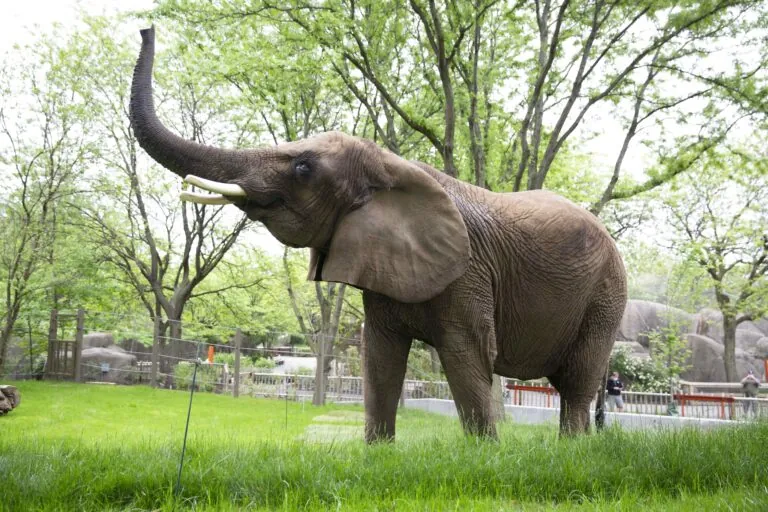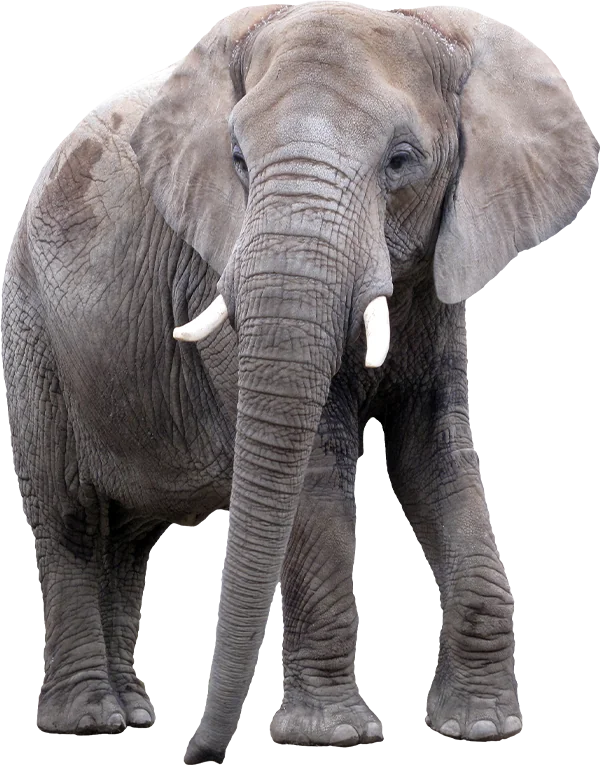-
Menu
- Plan Your Visit
- Meet The Animals
- Check Out Events
- Memberships
- About The Zoo
- Support the Zoo
- Conservation
- Education
- Groups & Private Events
- Zoo News
- Contact
- Indianapolis Prize
- Global Center for Species Survival
- Schedule
- Donate
- Membership
- Tickets

- Plan Your Visit
- Meet The Animals
- Check Out Events
- Memberships
- About The Zoo
- Support the Zoo
- Conservation
- Education
- Groups & Private Events
- Zoo News
- Contact
- Indianapolis Prize
- Global Center for Species Survival

African Savanna Elephant
Loxodonta africana
About
Elephants are the largest land animals! Males are usually bigger than females, but they all continue growing throughout their lives. To fuel their huge size, elephants need a lot of food—300 pounds or more of plants every day! They grind their food using large molars inside their mouth that wear down and get replaced with up to five additional new sets. Tusks are long front teeth that grow throughout an elephant’s life. Elephants use their tusks for digging, obtaining food, defense and more.
An elephant’s trunk is a terrific tool for life in the African savanna. As both nose and upper lip, it helps them eat food down low or up high. Elephants can also suck in water with their trunk and shoot it over their body to cool off. A trunk is strong enough to move branches but gentle enough to grasp small items—it gives elephants a keen sense of smell and help them make sounds to communicate, too! An elephant’s large, flappy ears help them cool off on hot days.
Elephants are very social, and the females lead the herd. The oldest females—the matriarchs—know a lot about their environment and the social relationships in the herd. Together, the females work together to care for young and lead the group to food and away from danger. Baby elephants are born after growing inside their mom for 22 months—and they weigh 200 pounds or more when they’re born! Calves stay close to their mothers for about 8 years.

Conservation
African elephants are now an endangered species, and their populations are shrinking. They are threatened by poaching for their tusks (ivory). They also face habitat loss and fragmentation as humans share their space.
The Zoo partners with other groups to support the conservation of large African mammals and help people live alongside wildlife through the Tanzania Conservation Research Program. We also are pioneers in elephant breeding, home to the first two African elephants in the world to be conceived and successfully born through artificial insemination.
You can help African elephants by pledging to never buy ivory and to recycle your electronic items. The mineral coltan, used in our everyday electronic devices such as cellphones, is mined from elephant habitat. Recycling these items lowers the need for more mining.
Elephant Bathing Experience

For a donation of $50 or more, you’ll receive an Animal Amigo package which includes one Elephant plush, photo, certificate, and recognition on the Animal Amigo donor board.

During the warmer months, come to Tembo Camp to learn how Zookeepers care for the members of our African elephant herd. You may even have a chance to touch an elephant and gain a unique new perspective of these gentle giants.
WHERE ARE THEY AT THE ZOO?


